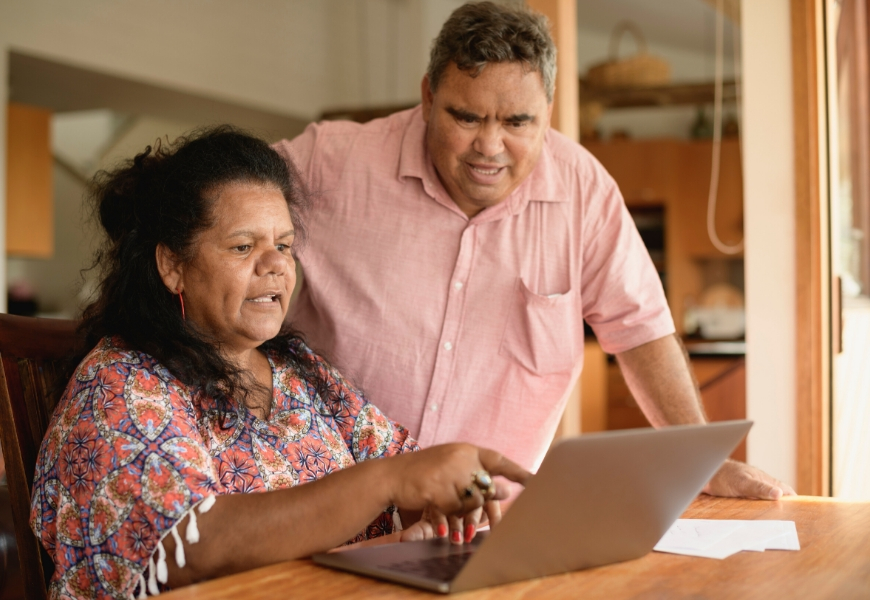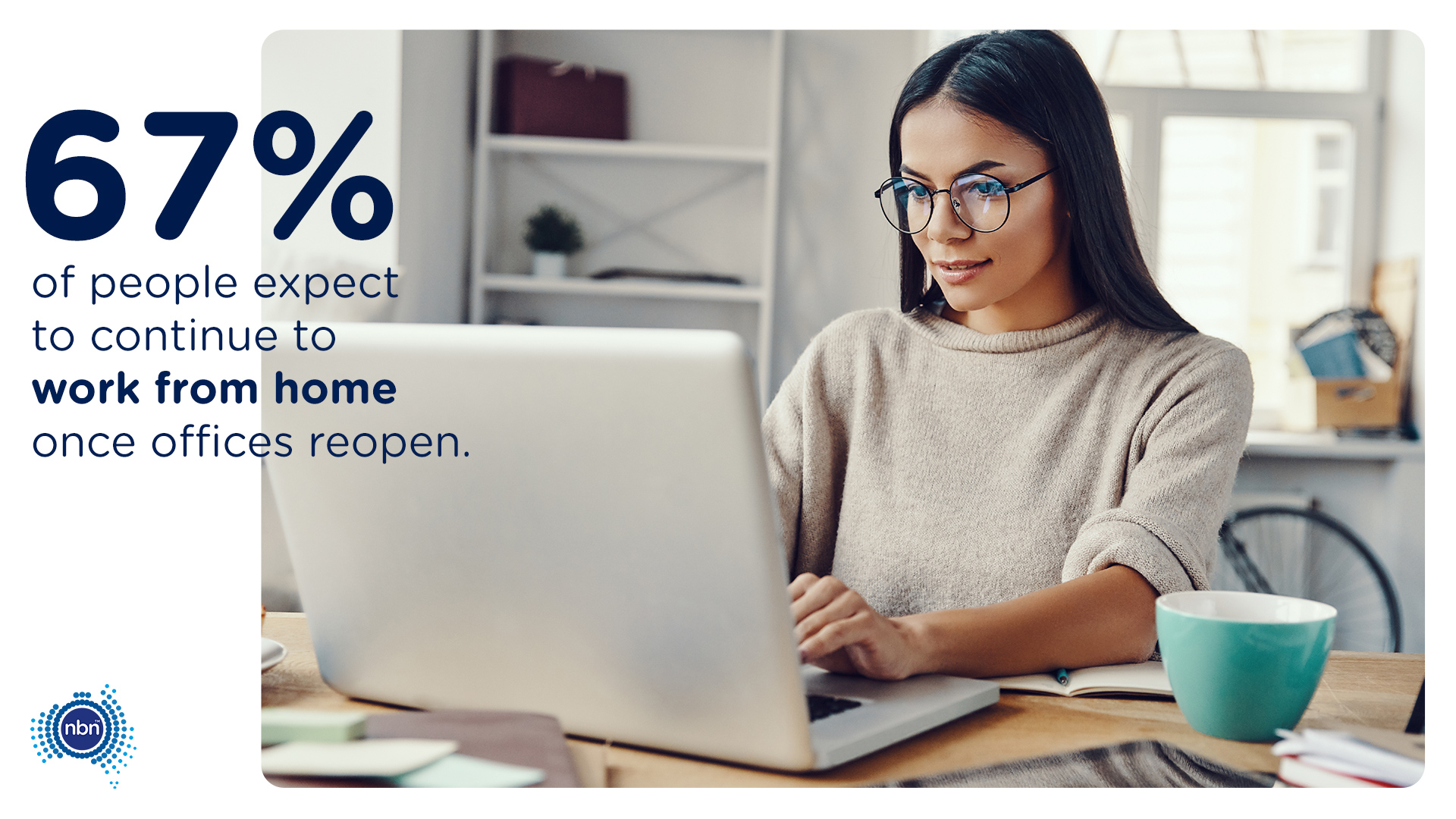
Right at home working: flexibility the new normal
With the arrival of ‘social distancing’ – the necessary practice to help stop the spread of COVID-19 – came dramatic and rapid changes to the way Australians live, work and relax.
Employers quickly shifted their workforces from the office to home, schools and universities moved their learning online, and the need to physically isolate from one another also meant turning to the internet to connect with family, friends and entertainment.
Before long, data demand on the nbn™ network skyrocketed to its highest-ever peak.
To help understand just how internet consumption needs have changed – and the online behaviours that may endure even once restrictions have lifted – we recently conducted the nbn™ Behavioural Change Survey.

Fast broadband helping job security
Investigating how Australians used the internet before and during social distancing, the research – commissioned by nbn and carried out by Venture Insights – found that access to fast broadband made 81 per cent of those surveyed feel more secure in their jobs during the COVID-19 crisis.
As importantly, 83 per cent of respondents said they could not have completed their jobs without it.
These results come as little surprise to Brad Whitcomb, Chief Customer Officer – Residential at nbn.
“The COVID-19 pandemic has accelerated the digitisation of our lives and highlighted the very reason the nbn™ network was built,” says Brad.
“The way Australians use the internet to work, learn new skills and connect with their family, friends and colleagues has been transformed, and we expect that many of these new behaviours are here to stay.”

Working from home sweet home
The results are also close to home for nbn.
In late March, thousands of nbn employees (with the exception of field technicians) shifted to working from home.
“Having successfully transitioned such a high percentage of our own staff to working from home, we have had a very real experience of what has been occurring for workers across the country,” says Brad.
“We expect the experience to inform our thinking about how we work as a company in the future, and I expect that many other companies are considering how remote working may become a more permanent feature for their teams after social distancing measures are eased.”

And it seems that working from home has been a silver lining for many Australians in what has otherwise been a very challenging time.
More than two-thirds (67 per cent) of those surveyed who worked from home said they expect to work from home more after the COVID-19 crisis has ended. This number was higher for Australians living in metropolitan areas at 69 per cent, versus those living regionally (54 per cent).
A new view on work/life
Despite the uncertain times, when it comes to working from home, the outlook certainly looks bright.
Eighty-one per cent of those surveyed who have worked from home during the COVID-19 pandemic said the experience has positively impacted how they view their work/life flexibility.
“As working habits have changed over the past several weeks, many preconceptions about the viability of long-term remote working seem to have shifted,” says Nigel Pugh, Managing Director at Venture Insights.
“We’ve seen in the research that, for many Australians, this change in routine has given them the freedom to embrace greater work/life flexibility.”

To support their new way of working, 79 per cent of respondents working from home have purchased one or more devices to support their online activities, with 56 per cent also creating a new or dedicated home office space.
“As people settle into their new routines, they are beginning to consider how their professional habits might change in the longer-term,” says Brad.
“For nbn, it’s vital that we to continue to invest in understanding what those changes are so we can best support Australians to get more out of their in-home internet experience, well beyond the COVID-19 crisis.”
